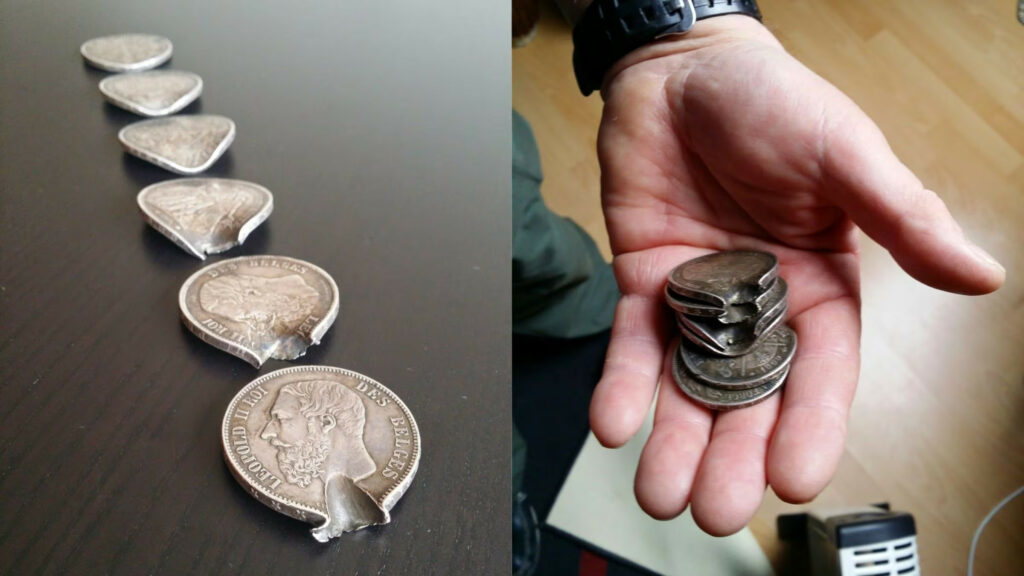In the chaotic landscape of World War I, an ordinary soldier’s pocket change became an unexpected hero. This is the extraordinary story of Optatius Buyssens, a Belgian soldier whose life was saved by the coins in his pocket.
On a fateful night in September 1914, Buyssens was on a covert mission near the Belgian town of Lebbeke. As he crept through the darkness, the jingling of coins in his pocket betrayed his position to the enemy. Little did he know, this small sound would soon become his salvation.
Six Coins, One Bullet, and a Second Chance

A German soldier fired at Buyssens, but fate had other plans. Six coins in his pocket – three Belgian and three French – acted as an improvised armor. The bullet struck the coins and ricocheted off his chest, leaving Buyssens miraculously unharmed.
A Brush with Death
Buyssens’ ordeal wasn’t over. The German soldier approached to finish the job. Playing dead, Buyssens endured a kick to the head before managing to escape with the help of a fellow Belgian soldier.
The Determined Volunteer
Remarkably, Buyssens wasn’t supposed to be there at all. Initially rejected from military service due to a hip injury, his determination led him to volunteer anyway, ultimately leading to this life-changing encounter.
A Story Preserved in Time

Buyssens survived the war and lived until 1958. His incredible story remained hidden until his family discovered it in his war journals, now housed in a museum in Antwerp. The bullet-marked coins are on display, a tangible reminder of this extraordinary tale of survival.
Reflections on Fate and Resilience
Buyssens’ story is a powerful reminder of war’s unpredictability and the impact of chance. In a conflict marked by immense suffering, this tale offers a glimmer of hope. It stands as a testament to human resilience and the unexpected ways fate can intervene to preserve a life.
The story of Optatius Buyssens is a remarkable example of how the smallest of things can make the biggest difference in the midst of war. His pocket change, a seemingly insignificant detail, ultimately saved his life and became a symbol of the unpredictable nature of conflict.

As we reflect on the sacrifices and hardships of World War I, Buyssens’ story provides a poignant reminder that even in the darkest of times, there can be moments of unexpected grace and survival. His resilience in the face of adversity, and the role that chance played in his survival, make this tale a powerful and inspiring one.
The discovery of Buyssens’ story in his war journals, and the preservation of the bullet-marked coins in a museum, ensure that this extraordinary event will not be forgotten. It stands as a testament to the importance of preserving personal accounts and artifacts from the past, as they can shed light on the human experiences and stories that often get lost in the grand narratives of history.

Ultimately, Optatius Buyssens’ story is a powerful reminder that even in the chaos and brutality of war, the smallest of things can make the biggest difference. His survival, against all odds, is a testament to the resilience of the human spirit and the unpredictable nature of fate. It is a story that deserves to be told and remembered, a shining example of the extraordinary within the ordinary.
